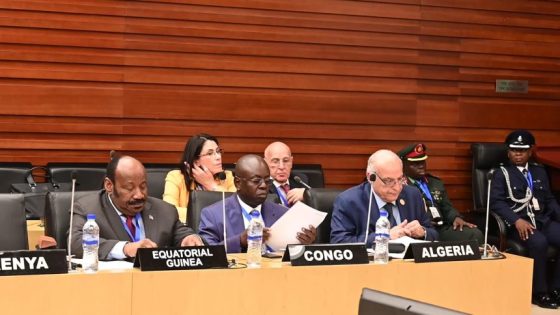Physical Address
Indirizzo: Via Mario Greco 60, Buttigliera Alta, 10090, Torino, Italy
Physical Address
Indirizzo: Via Mario Greco 60, Buttigliera Alta, 10090, Torino, Italy


Algeria’s commitment.
The reform of certain international institutions, notably those of the United Nations, has always been one of the most important projects of Algerian diplomacy. The commitment made by Algeria in this approach requires increased mobilization of countries, which suffer from the dysfunctions of these institutions which no longer meet the current needs of the people of Third World countries.
This is why Algiers has initiated a process of consultations with African experts to unify Africa’s position in the negotiations and debates that will take place on this issue between governments around the world.
Yesterday, the work of the Preparatory Expert Meeting of the 11e Ministerial meeting of the Committee of Ten Heads of State and Government of the African Union (C10) on this reform of the United Nations Security Council, scheduled for today, began yesterday at the International Conference Center (CIC) Abdelatif- Rahal in Algiers.
The C10 was created in 2005 to support the unified African position in the ongoing government negotiations within the framework of the UN. It is made up of ten (10) African countries, namely Algeria, Republic of Congo, Equatorial Guinea, Kenya, Libya, Namibia, Uganda, Sierra Leone, Senegal and Zambia.
Algeria has always displayed its availability to contribute effectively to the collective effort aimed at mobilizing more international support for the common African position on the reform of the Security Council, pleading for a “comprehensive, balanced and integrated” reform project. » of this UN body.
She has also underlined, on numerous occasions, her commitment to contributing to efforts to strengthen and promote the unified African position regarding the issue of Security Council reform, particularly in her capacity as a non-permanent member of this UN body, and this, according to a global and integrated approach to correct the historical injustice with regard to the African continent.
In this regard, it should be noted that the head of Algerian diplomacy, Mr. Ahmed Attaf, recalled this commitment last February in Addis Ababa, looking ahead to the 12th meeting of the ministerial committee of ten, heads of state and of government of the African Union, in charge of the project.
The representativeness of Africa within the Security Council is an acute question. It is obvious that this continent is the victim of blatant marginalization, while it suffers from crises, tensions and armed conflicts. More than an expansion of the component of this Council, Africa is demanding at least five seats of non-permanent members, pleading at the same time for mechanisms for the fair and equitable functioning of this sensitive body. For Algeria and other African countries, this is a global, balanced and integrated reform project.
Attaf declared during his speech last February in Ethiopia that “Algeria tends to work together with the Republic of Sierra Leone, a sister country, at the level of the security council, to hold a high-level ministerial meeting between the group of the ten and the five permanent member states, on the sidelines of the 79th session of the UN General Assembly.
The head of Algerian diplomacy called on the members of the committee of ten to focus their collective efforts on three priorities. First, the need to confront the various attempts aimed at undermining the reform process, weakening the common African position, then the crystallization of a global reform project and finally, the imperative to comply with the approved mandate by the UN General Assembly to draw inspiration from the government negotiations held in this hemicycle as a unifying and consensual framework for taking charge of the Security Council reform file.